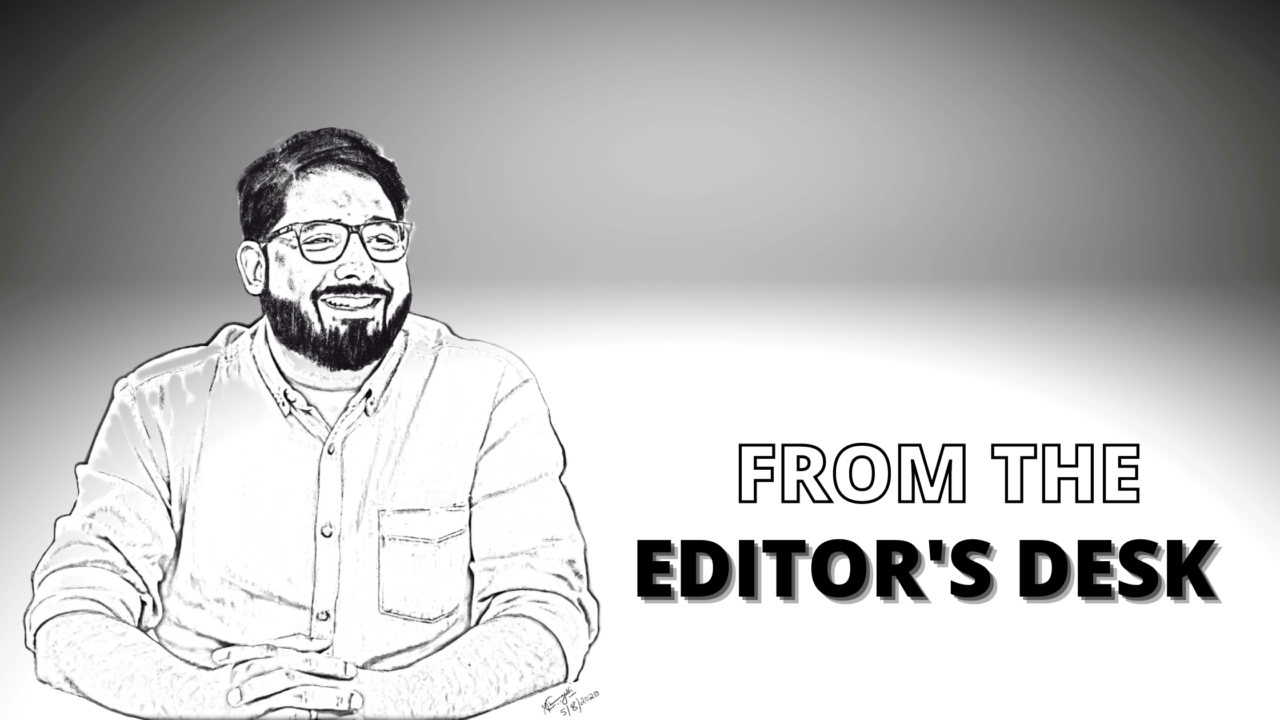As we take our baby steps into the May edition of WFY magazine, world is becoming increasingly turbulent, unpredictable and grossly mismanaged. The ray of hope seem to be diminishing by the day and by the hour. Still it is human and our very nature to hope for the best. Let’s look around us and take a stock of things.
The Diaspora diplomacy of reaching out to India’s vast diaspora (which includes both Indian-origin foreign citizens as well as non-resident Indians), celebrating their achievements, connecting them to their roots, and providing a framework for the diaspora’s engagement with India’s development story back home has seen an all-time high these days. The diaspora’s ability to spread Indian soft power, lobby for India’s national interests, and contribute economically to India’s rise is now well-recognised. But diaspora diplomacy has its own sensitivities. The role of the diaspora has become very vital in Indian democracy.
India, under Prime Minister Narendra Modi, has stepped up its engagement with Indians and those of Indian-origin abroad. But various other Indian political formations and social groups have done so too. This means that the narrative on India is not homogeneous.
It is to be seen as how the Indian government uses the diaspora to their advantage and how far it can respect their distinct views on India which may vary with the official version and balance such a delicate issue.
The role of the diaspora in the politics of their home countries is very crucial. In the last election in the United Kingdom, the Bharatiya Janata Party’s affiliates sent a clear message that a vote for Labour, given its position on Kashmir under Jeremy Corbyn, would undermine Indian interests. Boris Johnson’s win changed things.
In the US, one of the reasons both Donald Trump and Joe Biden adopted a positive approach to Indian interests was because of the Indian-American vote bank.
But the issue of whether to intervene in the electoral processes through the diaspora will remain sensitive because they are, at the end of the day, foreign citizens. India must leverage its diaspora but should not expect a lot from it.
The United Nations General Assembly adopted by consensus ( without voting), a resolution that would require the five permanent members of the Security Council (UNSC) to justify their use of the veto power but India called out to this development a “piecemeal reform”.
First Malaria vaccine is given WHO approval. The COVID-19 vaccine wasn’t the only scientific breakthrough made over the last year. A vaccine against Malaria is now one step closer to being rolled out for use after advisors for the World Health Organisation (WHO) concluded it could save thousands of lives each year. The next step is for the vaccine to be given the full go ahead for use by the WHO, and then funding for its manufacturer to be secured.
As a result of the pandemic, opportunity gaps have widened, as families do not have the financial capacity to support the education of their children. Many have placed education second to health in the priority list, thereby undermining children’s learning for years to come. The effect will be felt particularly in vulnerable countries and regions.
The post-pandemic world needs better public schools. How are we going to restart learning when we have pressed the pause button on many of our social systems?
Many families have found themselves unable to support their children’s education. Good quality and more government-supported schools could be the answer. In wealthier nations, schools have always been the first to open and last to close and citizens have benefited from the public school system.
Elon Musk claims to be a ‘free speech absolutist’. Announcing his £35bn ($44bn) acquisition of Twitter this week, Elon Musk made a typically sweeping claim: “Free speech is the bedrock of a functioning democracy, and Twitter is the digital town square where matters vital to the future of humanity are debated.” The self-described “free speech absolutist” now owns a platform where those views will probably shape the experience of its 400 million users and possibly wider society. His position deserves serious examination. As the platform’s new boss, he may find that principle hard to enact
The UK PM should have been more prudent to note Narendra Modi’s democratic backsliding and reluctance to speak out against the Russian invasion of Ukraine
Mr Johnson walked into a major human rights controversy over the use of JCB’s bulldozers in flattening Muslim homes and businesses in Delhi. While attending the inauguration of a new JCB factory in Gujarat, he might have thought he was leaving his troubles behind in United Kingdom
Vladimir Putin seem to be frustrated and is escalating Russia’s confrontation with the west. Russia’s state energy company Gazprom halted gas supplies to two EU member states – Poland and Bulgaria. Putin’s foreign minister, Sergei Lavrov, accused Nato of “engaging in a war with Russia through a proxy”. The risk of nuclear escalation, he said, was becoming “considerable”.
Economic warfare and apocalyptic threats can be read as signs of Russia’s bitter frustration at the way events have unfolded since February. The humiliating failure of Putin’s initial plan to capture Kyiv and topple the Ukrainian government was down to the bravery and skill of those who fought to defend their country.
There’s still hope friends, so hang on and work relentlessly towards bringing the much required change.
See you soon….
Love and regards
Melwyn
